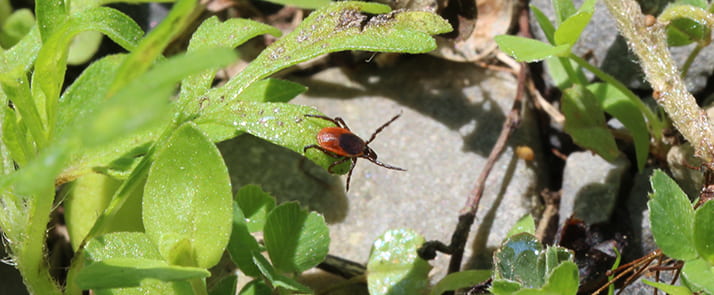Worry? That depends. First, spotted lanternflies do not bite or sting. They feed exclusively on plants outdoors and can only survive for about 48 hours without feeding on a plant. In natural and residential areas, they feed on Tree of heaven (Ailanthus), black walnut, maples (they will preferentially feed on silver maple, then red maple), willow,…Continue Reading Should I Worry About Spotted Lanternflies?
What Do Spotted Lanternfly Look Like?
SPOTTED LANTERNFLIES are named after flies, look like moths, but are actually planthoppers. They have piercing-sucking mouthparts which allow them to drill into the phloem of a plant to feed directly on the sugary sap—which comes out their other end as sticky, sweet honeydew. This planthopper is thought to have arrived as egg masses on…Continue Reading What Do Spotted Lanternfly Look Like?
Gardener Assistance Needed with Monitoring Downy Mildews Affecting Cucurbit Plants and Basil
Thank you to Margaret Tuttle McGrath with the Long Island Horticultural Research & Extension Center for providing the following content and opportunity! Occurrence of two important diseases is being monitored to be able to inform farmers, so they know when preventive fungicide applications are warranted, and to increase knowledge about these diseases. Occurrence of these…Continue Reading Gardener Assistance Needed with Monitoring Downy Mildews Affecting Cucurbit Plants and Basil
Box Tree Moth -a MAJOR pest threat to Boxwood
Box Tree Moth a serious threat to plant health Box Tree Moth (BTM) first appeared in New York State in 2021, likely carried on a storm from an infestation just across the border in Ontario, Canada. Infestations have been identified in Niagara and Orleans county in 2023; the impacted range may expand through natural movement. The…Continue Reading Box Tree Moth -a MAJOR pest threat to Boxwood
Tick Bite Prevention – Dressing the Part – Rubber Boot Myth

When you see someone putting on his Big Boots, you can be pretty sure that an Adventure is going to happen. – A. A. Milne Last week I wrote a blog post on Tick Bite Prevention – Dressing the Part discussing why we make the recommendations we do. Today I want to address one commonly…Continue Reading Tick Bite Prevention – Dressing the Part – Rubber Boot Myth
Tick Bite Prevention – Dressing the Part

You can have anything you want in life if you dress for it. —Edith Head I don’t know about you, but what I want in life is to go outdoors and enjoy beautiful weather without contracting a life-changing illness. And, thank goodness, it IS possible. In the long list of items you can do to…Continue Reading Tick Bite Prevention – Dressing the Part
New York’s Eighth Annual Invasive Species Awareness Week Begins Sunday, June 6
We’re pleased to pass along this press release from the New York State Departments of Environmental Conservation. Free Public Events Scheduled Across New York State ISAW Kicks Off with Webinar Highlighting Events and New York’s Invasive Species Network The New York State Departments of Environmental Conservation (DEC) and Agriculture and Markets (AGM) today announced that…Continue Reading New York’s Eighth Annual Invasive Species Awareness Week Begins Sunday, June 6
Help! Gardener Assistance Needed with Monitoring Downy Mildews
Thank you to Margaret Tuttle McGrath with the Long Island Horticultural Research & Extension Center for providing the following content and opportunity! Extension plant pathologists from across the region are seeking gardener assistance with monitoring downy mildews affecting cucurbit plants and basil. Cucurbits include cucumber, winter squash, summer squash, watermelon, and assorted gourds. Occurrence of…Continue Reading Help! Gardener Assistance Needed with Monitoring Downy Mildews
After planting: status of current drought conditions in NY
May has been warm and dry so far in New York, which is great for planting. But take a look at current drought conditions, organized by county, as reported by the National Drought Mitigation Center. This might be useful for planning purposes in coming weeks after seed and transplants are in the ground. For a…Continue Reading After planting: status of current drought conditions in NY
Questions and Suggested Links from our VEGETABLE IPM CONFERENCE, April 2021
A big thank you again to both our speakers and our attendees. You made this year’s virtual conference a huge success! Here are some questions that came into the chat during the conference: Pam W: Is using pesticide treated seeds considered organic? Steve Reiners answers: Pesticide treated seeds would not be allowed in a certified…Continue Reading Questions and Suggested Links from our VEGETABLE IPM CONFERENCE, April 2021